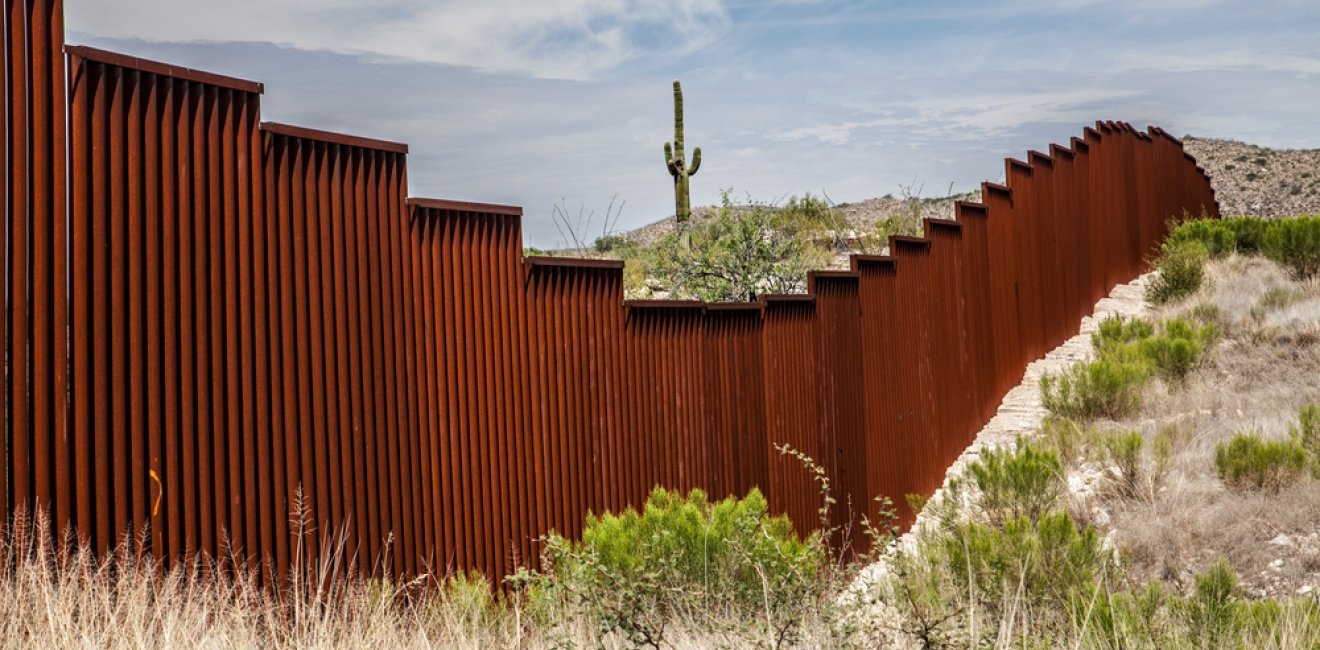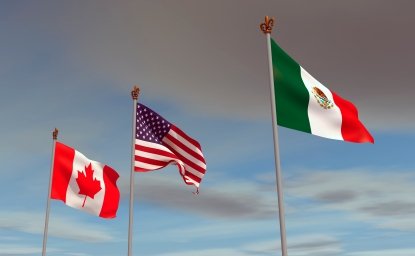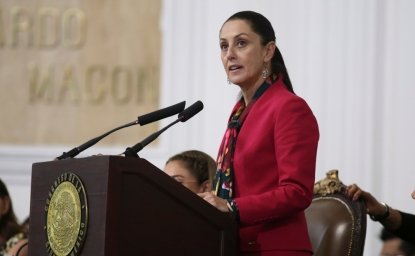Week of 04/26/2024 - 05/02/2024
Biden and AMLO agree on additional measures to address irregular migration
In a private call on Sunday (04/28), Mexican President Andrés Manuel López Obrador and US President Joe Biden agreed to enact new measures to address high levels of irregular migration across the US-Mexico border.
President López Obrador revealed during his morning press conference on Monday (04/29) that he had spoken privately with US President Joe Biden the day before to discuss additional measures to be implemented to deal with the large numbers of migrants that illegally cross the US-Mexico border. In a call that was initiated by President Biden, the two leaders highlighted the importance of containing irregular migration, but also recognized that the border should remain open for legal migration.
Although specific actions were not named, López Obrador stated that both countries would increase security and enforcement to reduce illegal border crossings, as well as focusing on initiatives that promote prosperity and security throughout the Western Hemisphere so that there are fewer incentives for individuals to migrate through Mexico towards the US.
Mexico-Ecuador Crisis: Arguments begin at the ICJ
This week, arguments began in Mexico’s case against Ecuador with the International Court of Justice (ICJ) in The Hague, following the April 05 raid of Mexico’s embassy in Quito by Ecuadorian special forces to arrest Ecuador’s former Vice President, Jorge Glas, who is facing charges of corruption.
During the hearings, representatives of Mexico argued that no situation should override the inviolability of a nation’s embassy and emphasized the important ramifications of this case on the future of diplomacy. In addition to the initial request of expelling Ecuador from the United Nations, Mexico’s delegation asked the ICJ for security measures to protect Mexican diplomatic buildings and diplomats’ private homes in Ecuador.
On Monday (04/29), Ecuador filed its own case against Mexico with the ICJ, arguing that Mexico had violated international law and misused its diplomatic abilities by granting asylum to Jorge Glas, who had been living in the Mexican embassy in Quito since December 2023. Throughout the hearings this week, Ecuador maintained that the raid on April 5 was an “exceptional” situation, so there is no need for the security measures that Mexico has requested.
Second presidential debate
On Sunday night (04/28), the three leading presidential candidates met for the second of three presidential debates and discussed four key issues: climate change and sustainable development, infrastructure and development, economic growth, and poverty and inequality.
Claudia Sheinbaum, candidate for the incumbent MORENA party, emphasized the progress made by the social programs of the current administration and pledged to continue the programs if elected. Jorge Álvarez Máynez of the Movimiento Ciudadano party presented various proposals, including a minimum wage of 10,000 pesos per month. However, much of the debate was overshadowed by insults like “liar” and “narco-candidate” being launched between the two leading candidates – Sheinbaum and Xóchitl Gálvez, candidate for the opposition coalition.
The third and final presidential debate will take place on May 19, and elections will be held on June 02. For an analysis of the most important proposals discussed during the debate, watch our Election Series webinar.
Pension reform signed on Mexico’s Labor Day
On Wednesday (05/01), Mexico’s Labor Day, President Andrés Manuel López Obrador signed the reform to Mexico’s pension system that was approved in the Chamber of Deputies and the Senate last week, and the reform went into effect immediately.
The reform to the pension system creates a fund that will be financed with unclaimed savings from inactive Retirement Funds Administrators (Afores) accounts. More specifically, about 40 billion pesos of unclaimed savings of individuals aged 70 or older in inactive accounts will be put in a fund for workers who earn under a certain amount, so that they may receive 100% of their salary upon retirement. This fund will also be financed by profits from state-owned entities, like Mexicana de Aviación, the national airline, as well as the Maya Train.
Prior to the signing, Secretary of the Interior Luisa María Alcalde announced that a committee will be formed to oversee the implementation and maintenance of the pension fund, with representatives from various organizations including the Bank of Mexico, the Ministry of the Interior, and the Ministry of Labor and Social Welfare. The first payments from the pension fund will be made on July 1.






